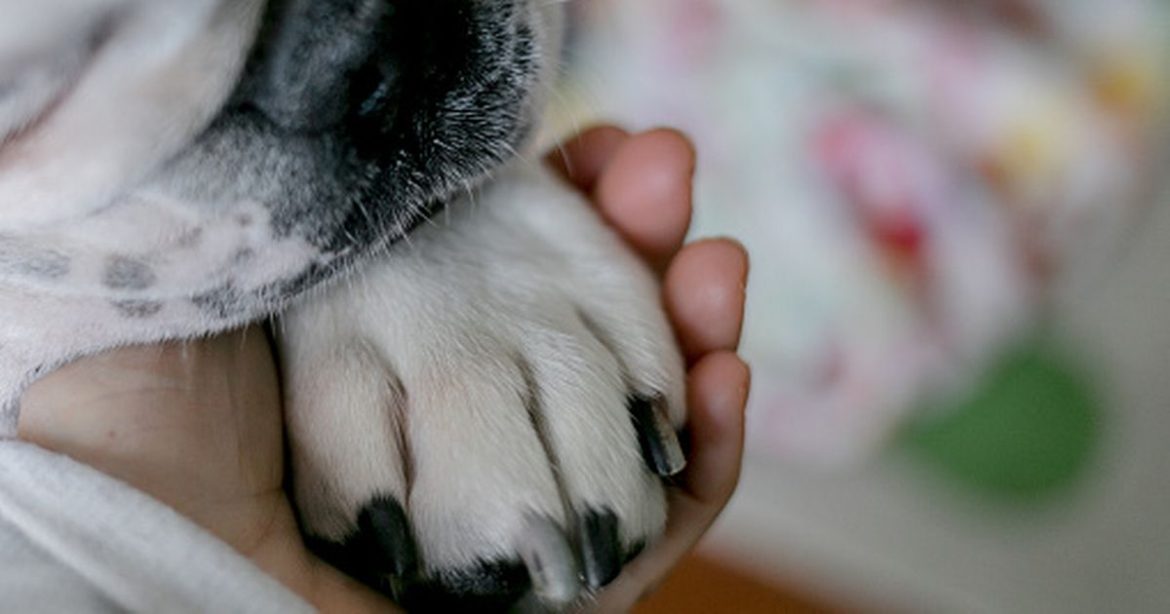A local council has called upon the NI Executive to implement “Ruby’s Law”
A local council is calling for Northern Ireland to adopt “Ruby’s Law” which seeks to provide legal protection for pets in households where domestic abuse occurs.
Ruby’s Law in the UK is a campaign proposing legislation to provide explicit legal protection for pets in domestic abuse cases. It aims to ensure that victims do not have to choose between their own safety and their pet’s safety when leaving an abusive partner.
Ruby’s Law is a campaign founded by barrister Christina Warner and named after her cat Ruby. It is not yet enacted law.
READ MORE: No hot water or heating for three months in leisure centre branded “shame and disgrace”
READ MORE: Outcry over three luxury house developments on North Down coastal path
During a committee meeting at Ards and North Down Borough Council this week, elected members unanimously backed a proposal by the Green Party to call on the Stormont Executive to adopt the law changes. It is the first public body to call for the law to be enacted here.
The motion was forwarded by Green Councillor Lauren Kendall and seconded by Independent Councillor Steven Irvine at the Active and Healthy Communities Committee. It states: “This council recognises the link between domestic abuse and non-accidental harm to companion animals and the emotional trauma this causes victims and survivors.
“It acknowledges that companion animals are often used as tools of coercion and control in abusive relationships, and that their welfare is intrinsically linked to the safety and wellbeing of victims.
“The introduction and implementation of Ruby’s Law, as proposed in other parts of the UK, seeks to provide legal protection for pets in households where domestic abuse occurs, ensuring that they are considered in protective orders and safeguarding measures.”
Elected representatives resolved for the council to write to the Stormont Ministers for Justice, Communities, Finance, Health and Agriculture calling for the introduction of Ruby’s Law in Northern Ireland. The council will also call on the Stormont offices to deliver a cross-departmental collaboration with Causeway Coast Dog Rescue charity, and other animal welfare and domestic abuse organisations.
The council is asking for Stormont to promote public awareness of the connection between domestic abuse, coercive control and animal abuse, in campaigns collaborating with statutory agencies and animal welfare organisations.
Ruby’s Law seeks specific changes to existing UK legislation. Current law often treats pets as property, which overlooks their significant emotional value and their role as tools of abuse.
Ruby’s Law firstly calls for a change to the Family Law Act 1996, to allow pets to be included in non-molestation and occupation orders. This would legally prohibit abusers from harming, threatening, or removing pets, and allow courts to decide who retains care of the pet.
It also calls for a change to the Domestic Abuse Act 2021, for lawmakers to explicitly classify threats or harm to pets as a form of coercive control, emotional, or economic abuse.
Research shows that between 48 percent and 71 percent of domestic abuse survivors delay leaving their abusers out of fear for their pets’ safety. 90 percent of households experiencing domestic abuse in England and Wales reported that animals were also abused by the perpetrators.
At the council meeting this week, Green Councillor Lauren Kendall said: “Companion animals are more than property, they are family. Across Northern Ireland, companion animals are present in many, if not the majority, of homes, and they are very much loved.
“They are the ones that greet us at the door, comfort us in moments of despair, and love us without condition. Their welfare is intrinsically and vitally linked to the safety and wellbeing of many of us.
“But in too many cases, they are made weapons of domestic abuse, coercive control, and violence. They are threatened, harmed, and used to manipulate and terrorise victims.”
She added: “A pattern, backed by research, shows that animal abuse is a key predictor of escalating violence, including homicide. 97 percent of domestic abuse professionals have come across cases where pets were harmed as a means of controlling victims.
“Survivors whose abusers harmed animals endure an average of 50 violent incidents before seeking help, compared to seven incidents for those without pet abuse histories. In 88 percent of cases where children were physically abused, animal abuse was also present. Children witnessing pet abuse suffer emotional and psychological distress similar to suffering domestic abuse themselves.”
She said: “Many women cannot leave abusive homes, because for example refuges are not able to accept pets. This traps victims, perpetuates domestic abuse, and puts people in a position where they feel they have an impossible choice – stay in danger, or leave their pets behind.
“With most shelters over capacity, and unable to take in animals, families are torn apart, and abusers know it, and use it.”
For all the latest news, visit the Belfast Live homepage here and sign up to our daily newsletter
#Call #law #protecting #pets #domestic #abuse #adopted

